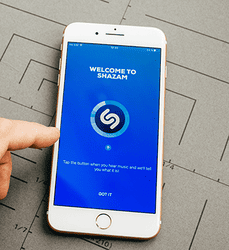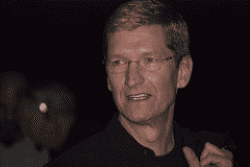Shazam, which is headquartered in London, has more than one billion downloads worldwide.

In a surprise move analysts are calling a sneak attack on the music platform Spotify, Apple has acquired the music-recognition app Shazam, which will beef up Apple Music.
The deal was first reported by start-up news specialist TechCrunch, with a sticker price of $400 million. That’s far less than the most recent valuation of $1.02 billion Shazam was given in its last funding round in 2015, which a source on the TechCrunch story said was too high.
Shazam, which is headquartered in London, has more than one billion downloads worldwide. So what value does Apple see in the acquisition?
With more than 120 million active users who go to the app more than 20 million times every day, Shazam garners the kind of loyalty that’s appealing to any company.

Shazam also has recurring revenue from ads that are displayed as users scan their environs to identify a song.
And all those downloads and users generate a treasure trove of Big Data, the new gold—it’s why all companies now want your email, address and phone number whenever you sign up for anything.
Finally, Shazam has dozens of patents—some 200 in all—and that intellectual property is the kind of stuff Apple’s brain trust likes.



